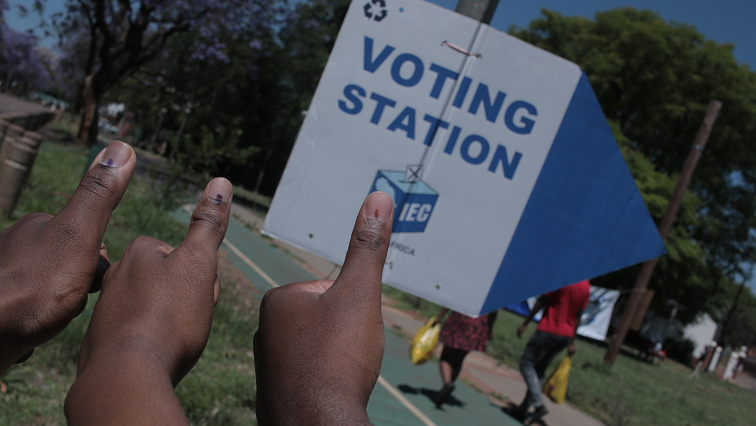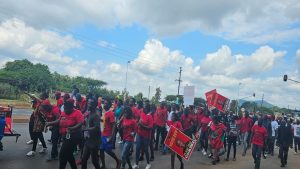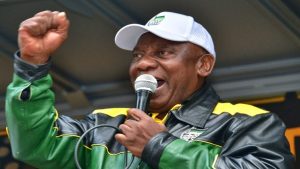South Africa’s 2024 national and provincial elections are regarded as a realistic opportunity for coalition governments to be formed in some provinces and also at the national level. This would mark a dramatic change from the current situation in which coalition governments have only been formed at local level.
Electoral trends since 2016 underscore these expectations. The ANC lost its majorities in metropolitan councils in Gauteng and Nelson Mandela Bay. Its majorities in the national and provincial legislatures also declined. But support for opposition parties did not escalate at the same time. Voter turnout continued its declining trend.
In the coalition debate an important permutation is about who would constitute the coalitions.
One option that’s been talked about with increasing intensity is a coalition between the African National Congress (ANC) and the Economic Freedom Fighters (EFF).
In terms of experience, the ANC has run the national government since 1994. It also governs eight of South Africa’s nine provinces and most of the 257 metropolitan, district and local municipalities. (In the past, the ANC was also involved in provincial coalitions in KwaZulu-Natal and the Western Cape. For its part the EFF lacks experience in any form of government.
The possibility of an ANC-EFF coalition has generated a great deal of debate. But such an alliance would prove difficult to put together and made to work. That’s for two reasons: ideology and policy. These two have proved key determinants of successful coalitions elsewhere in the world.
EFF
Most of the EFF’s leaders are former ANC Youth League figures who were expelled in 2013. They differed on ideological grounds from the ANC senior leadership about expropriation and nationalisation of land, mines and banks. The EFF describes itself as a Marxist-Leninist party influenced by the thoughts of Frantz Fanon. The ANC, on the other hand, still regards itself as a liberation movement in a social democratic tradition.
In the 2016 local government election the ANC lost its absolute majority in the key Johannesburg, Tshwane, Ekurhuleni and Nelson Mandela Bay metropolitan councils. A coalition government was the only option for them. In Ekurhuleni, the ANC formed a coalition with the African Independent Congress but in the other three councils a more expanded coalition was required.
In the three instances, an ANC-EFF coalition was a definite possibility. But the latter preferred an informal cooperation understanding with the Democratic Alliance (DA), the country’s main opposition party, and its formal coalition partners. The EFF’s cooperation was essential for the DA grouping because on their own they would be a minority government. Towards the end of the term close to 2021, the EFF withdrew its cooperation from the DA coalition. This resulted in regime changes after successful motions of no confidence by the ANC alliance. This demonstrated the EFF’s “kingmaker” qualities and political pragmatism. But, it harmed the public’s faith in coalitions.
A similar tendency has recently emerged in KwaZulu-Natal province where the EFF and the Inkatha Freedom Party (IFP) shared power in about 25 local governments, in some instances already since the 2016 elections. Recently the EFF announced that they will withdraw from these coalition governments, and pair with the ANC to form new governments. Their earlier cooperation with the IFP was directly aimed against the ANC.
The EFF’s coalition strategy
The EFF’s strategy has been unpredictable most of the time. At the time of the 2021 local government elections, the party’s main negotiator, Floyd Shivambu, articulated the following strategy: the EFF did not want to share power in a local government, but rather wanted to reach a package agreement that it control all the executive positions in Ekurhuleni. The ANC would do the same in Johannesburg, and the DA control all the positions in Tshwane.
Shivambu failed to convince the other parties. The final outcome was conventional, power-sharing coalitions with the DA at the core, excluding the ANC and EFF. Both parties, however, managed to entice smaller parties in the DA grouping to break ranks and removed the DA-led governments in no confidence motions. New speakers and mayors in the Gauteng metropolitan councils were elected from minute parties like the Congress of the People, al Jama-ah and the African Transformation Movement , and not from the ANC or the EFF.
The latest ANC-EFF approach
In the centre of municipal power – the mayoral committee – real power sharing between the ANC and EFF is being implemented mainly in Ekurhuleni and to a lesser degree in Johannesburg.
What does the latest ANC-EFF approach tell us? It is widely speculated that it is primarily confined to Gauteng, the country’s economic hub, and that the ANC’s provincial leaders, including Premier Panyaza Lesufi favour such an approach. But, most of the party’s national leaders do not show the same appetite for it. Recently, for example, the ANC Veterans’ League and its leader, Snuki Zikalala, expressed a preference for the DA over the EFF as a possible coalition partner.
In the Gauteng provincial election in 2019, the ANC received a slim majority of only 50.12%. Therefore, an ANC-EFF provincial coalition in 2024 is not inconceivable. A similar national coalition, however, would be a different kettle of fish.
A national coalition government
National government is primarily responsible for national policies. The question is whether the ANC and EFF will be able to find each other in policy terms. Take for example land ownership which is a policy priority for the EFF. They favour expropriation of white-owned land for redistribution to the mainly landless black majority, without compensation and that all land acquired through land reform must be state-owned. On the other hand, the ANC’s expropriation policy ranges from zero to extensive compensation for specific property features, and ownership is not limited to the state.
For more than two years, a parliamentary committee considered different proposals for amending section 25 of constitutional property rights. The fact that the ANC and EFF could not find each other on such an amendment collapsed the process. If the two parties cannot find each other on such an important and symbolic policy matter, how can they agree on other policy matters?
The challenge of power-sharing
The final test of any coalition is: can parties agree on how to share power? So far, the EFF and ANC have avoided it in the case of top positions. In Johannesburg and Tshwane, more recently, they have not nominated their own members for the positions of mayor and speaker but gave them to very small parties.
In November 2022, the EFF tried to nominate its candidate as Ekurhuleni mayor but failed. The DA’s candidate was re-elected. It means that the ANC and EFF are not yet able to decide how to share these positions.
In a national government, the stakes for all the parties will be even higher. A minister’s position includes many personal gains, a high status and the power to reward patronage networks. It complicates power sharing as a strategic mechanism to cultivate cross-cutting loyalties which should stabilise the mosaic of interests in a coalition. This is the outstanding test for the ANC and EFF. They have not yet been in a situation of sharing power to the satisfaction of both sides.![]()
Dirk Kotze, Professor in Political Science, University of South Africa
This article is republished from The Conversation under a Creative Commons license. Read the original article.






